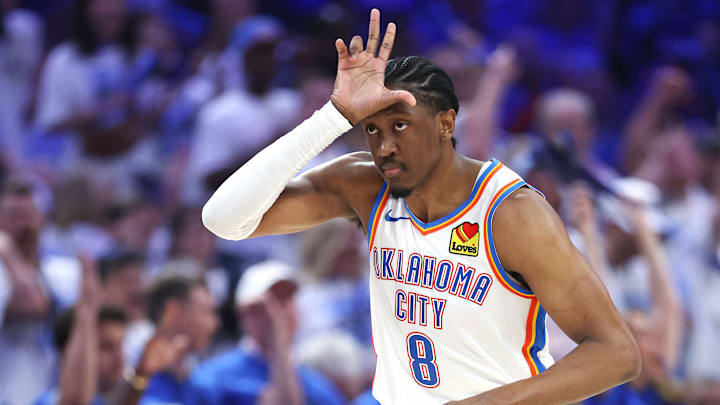The Oklahoma City Thunder have reminded the rest of the league why they are as dangerous off the court as they are on it. Despite not adding a single new free agent to their roster this offseason, the defending champions managed to walk away with one of the biggest wins of the summer, and it all comes down to how they structured their contract extensions.
Both Chet Holmgren and Jalen Williams received rookie max extensions this summer, which is no surprise considering their value to the franchise. But the way those contracts were constructed reveals a level of precision from the front office that could have long-term implications for Oklahoma City’s financial flexibility. The Thunder secured both players at the 25 percent max rate, but the critical detail lies in the absence of “Rose Rule” in Holmgren’s deal and the conservative escalators in Williams’ contract.
For those unfamiliar, the Derrick Rose Rule allows a player playing on a rookie deal to receive up to 30 percent of the cap instead of 25 percent if certain accolades are met, such as making an All-NBA team or winning MVP. (For more detail, the full breakdown can be found here.)
The Thunder are playing chess while everyone else is playing checkers
Holmgren’s contract avoids this entirely, guaranteeing that he will only make 25 percent of the salary cap no matter what awards he racks up this season. That could end up being a massive win for the Thunder, especially considering that Holmgren is viewed by many as the second favorite to win Defensive Player of the Year in 2025–26. If Victor Wembanyama misses the 65-game threshold required for award eligibility, Holmgren likely becomes the favorite, and yet his salary will not budge.
As for Jalen Williams, the Thunder took another sharp approach. His deal includes escalators based on All-NBA selections, but they are tiered. If Williams makes third-team All-NBA in 2026, he jumps to 26 percent of the cap. Second-team gets him to 27 percent, and first-team unlocks the full 30 percent. This is significant because Williams already made third-team All-NBA last season. Had Oklahoma City used standard escalators, they likely would have owed him the full 30 percent already.
Instead, OKC played it smart and saved millions. While other teams chase splashy trades or overpay to keep their cores intact, the Thunder just solidified two foundational pieces of their championship roster on team-friendly terms. That is how you win an offseason, no new additions necessary.
